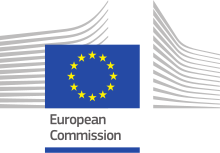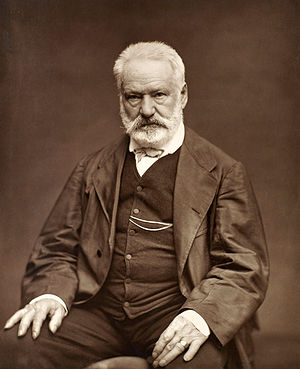Portal:Europe
| Main | Geography | Projects |
|
|
Europe is a continent located entirely in the Northern Hemisphere and mostly in the Eastern Hemisphere. It comprises the westernmost peninsulas of the continental landmass of Eurasia, and is bordered by the Arctic Ocean to the north, the Atlantic Ocean to the west, the Mediterranean Sea to the south, and Asia to the east. Europe is commonly considered to be separated from Asia by the watershed of the Ural Mountains, the Ural River, the Caspian Sea, the Greater Caucasus, the Black Sea, and the waterways of the Turkish Straits. Although much of this border is over land, Europe is generally accorded the status of a full continent because of its great physical size and the weight of history and tradition.
Europe covers about 10,180,000 km2 (3,930,000 sq mi), or 2% of the Earth's surface (6.8% of land area), making it the second smallest continent (using the seven-continent model). Politically, Europe is divided into about fifty sovereign states, of which Russia is the largest and most populous, spanning 39% of the continent and comprising 15% of its population. Europe had a total population of about 741 million (about 11% of the world population), as of 2018. The European climate is largely affected by warm Atlantic currents that temper winters and summers on much of the continent, even at latitudes along which the climate in Asia and North America is severe. Further from the sea, seasonal differences are more noticeable than close to the coast.
The history of Europe concerns itself with the discovery and collection, the study, organization and presentation and the interpretation of past events and affairs of the people of Europe since the beginning of written records. During the Neolithic era and the time of the Indo-European migrations, Europe saw human inflows from east and southeast and subsequent important cultural and material exchange. The period known as classical antiquity began with the emergence of the city-states of ancient Greece. Later, the Roman Empire came to dominate the entire Mediterranean basin. The fall of the Roman Empire in AD 476 traditionally marks the start of the Middle Ages. Beginning in the 14th century a Renaissance of knowledge challenged traditional doctrines in science and theology. Simultaneously, the Protestant Reformation set up Protestant churches primarily in Germany, Scandinavia and England. After 1800, the Industrial Revolution brought prosperity to Britain and Western Europe. The main European powers set up colonies in most of the Americas and Africa, and parts of Asia. In the 20th century, World War I and World War II resulted in massive numbers of deaths. The Cold War dominated European geo-politics from 1947 to 1989. After the fall of the Iron Curtain, the European countries grew together.
The culture of Europe is rooted in the art, architecture, film, different types of music, economic, literature, and philosophy that originated from the continent of Europe. European culture is largely rooted in what is often referred to as its "common cultural heritage".
The economy of Europe comprises more than 744 million people in 50 countries. The formation of the European Union (EU) and in 1999, the introduction of a unified currency, the Euro, brings participating European countries closer through the convenience of a shared currency and has led to a stronger European cash flow. The difference in wealth across Europe can be seen roughly in former Cold War divide, with some countries breaching the divide (Greece, Estonia, Portugal, Slovenia and the Czech Republic). Whilst most European states have a GDP per capita higher than the world's average and are very highly developed (Liechtenstein, Luxembourg, Monaco, Andorra, Norway, Sweden, Denmark, Netherlands, Switzerland, United Kingdom, Ireland, Germany), some European economies, despite their position over the world's average in the Human Development Index, are poorer.
Featured article -

The European Commission (EC) is the primary executive arm of the European Union (EU). It operates as a cabinet government, with 27 members of the Commission (directorial system, informally known as "Commissioners") headed by a President. It includes an administrative body of about 32,000 European civil servants. The commission is divided into departments known as Directorates-General (DGs) that can be likened to departments or ministries each headed by a Director-General who is responsible to a Commissioner.
There is one member per member state, but members are bound by their oath of office to represent the general interest of the EU as a whole rather than their home state. The Commission President (currently Ursula von der Leyen) is proposed by the European Council (the 27 heads of state/governments) and elected by the European Parliament. The Council of the European Union then nominates the other members of the Commission in agreement with the nominated President, and the 27 members as a team are then subject to a vote of approval by the European Parliament. The current Commission is the Von der Leyen Commission, which took office in December 2019, following the European Parliament elections in May of the same year. (Full article...)Featured location -
St Kilda (Scottish Gaelic: Hiort) is a remote archipelago situated 35 nautical miles (65 km; 40 mi) west-northwest of North Uist in the North Atlantic Ocean. It contains the westernmost islands of the Outer Hebrides of Scotland. The largest island is Hirta, whose sea cliffs are the highest in the United Kingdom; three other islands (Dùn, Soay and Boreray) were also used for grazing and seabird hunting. The islands are administratively a part of the Comhairle nan Eilean Siar local authority area.
The origin of the name St Kilda is a matter of conjecture. The islands' human heritage includes unique architectural features from the historic and prehistoric periods, although the earliest written records of island life date from the Late Middle Ages. The medieval village on Hirta was rebuilt in the 19th century, but illnesses brought by increased external contacts through tourism, and the upheaval of the First World War, contributed to the island's evacuation in 1930. Permanent habitation on the islands possibly extends back two millennia, the population probably never exceeding 180; its peak was in the late 17th century. The population waxed and waned, eventually dropping to 36 in 1930, when the remaining population was evacuated. Currently, the only year-round residents are military personnel; a variety of conservation workers, volunteers and scientists spend time there in the summer months. The entire archipelago is owned by the National Trust for Scotland. (Full article...)List of featured locations
|
|---|
Featured portrait
 |
In the News
- 14 February 2024 – Russian invasion of Ukraine
- Crimea attacks
- Ukraine claims to have sunk the Russian ship Tsezar Kunikov off the coast of Katsiveli, Crimea. A video appears to show the vessel being struck with unmanned surface drones. (Radio Free Europe/Radio Liberty)
- 13 February 2024 – Estonia–Russia relations
- Prime Minister of Estonia, Kaja Kallas, is reportedly placed on the Russian Interior Ministry's register of wanted people due to the country's removal of Soviet War Memorials, making Kallas the first known government leader to be added to a wanted list by Russian authorities. (The Guardian)
- 12 February 2024 – Israel–Hamas war
- Israel–Netherlands relations
- A Dutch appeals court orders a suspension of exports of F-35 jet parts to Israel within the next seven days over concerns that the aircraft parts are being used to commit serious violations of international humanitarian law. Prime Minister Mark Rutte says that the government will appeal the suspension. (Reuters)
- 12 February 2024 – Israel–United Kingdom relations
- British Foreign Secretary David Cameron announces sanctions against four Israeli settlers for engaging in extremist violence towards Palestinians in the occupied-West Bank. (Al Jazeera)
Updated: 16:33, 14 February 2024
Categories
Featured biography -
George I (Greek: Γεώργιος Α΄, romanized: Geórgios I; 24 December 1845 – 18 March 1913) was King of Greece from 30 March 1863 until his assassination on 18 March 1913.
Originally a Danish prince, George was born in Copenhagen, and seemed destined for a career in the Royal Danish Navy. He was only 17 years old when he was elected king by the Greek National Assembly, which had deposed the unpopular King Otto. His nomination was both suggested and supported by the Great Powers: the United Kingdom of Great Britain and Ireland, the Second French Empire and the Russian Empire. He married Grand Duchess Olga Constantinovna of Russia in 1867, and became the first monarch of a new Greek dynasty. Two of his sisters, Alexandra and Dagmar, married into the British and Russian royal families. Edward VII of the United Kingdom and Alexander III of Russia were his brothers-in-law, and George V of the United Kingdom, Christian X of Denmark, Haakon VII of Norway, and Nicholas II of Russia were his nephews. (Full article...)Featured picture
 |
Related portals
Major Religions in Europe
Northern Europe
Western Europe
Central Europe
Eastern Europe, Balkans and Caucasus
Southern Europe
Featured panorama
 |
Topics
Associated Wikimedia
The following Wikimedia Foundation sister projects provide more on this subject:
-
Commons
Free media repository -
Wikibooks
Free textbooks and manuals -
Wikidata
Free knowledge base -
Wikinews
Free-content news -
Wikiquote
Collection of quotations -
Wikisource
Free-content library -
Wikispecies
Directory of species -
Wikiversity
Free learning tools -
Wikivoyage
Free travel guide -
Wiktionary
Dictionary and thesaurus


























